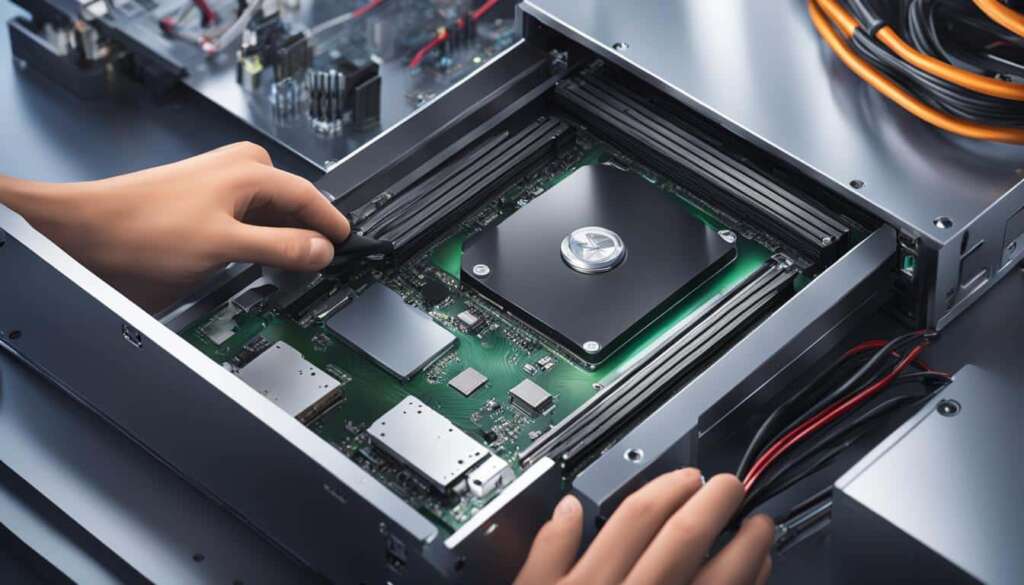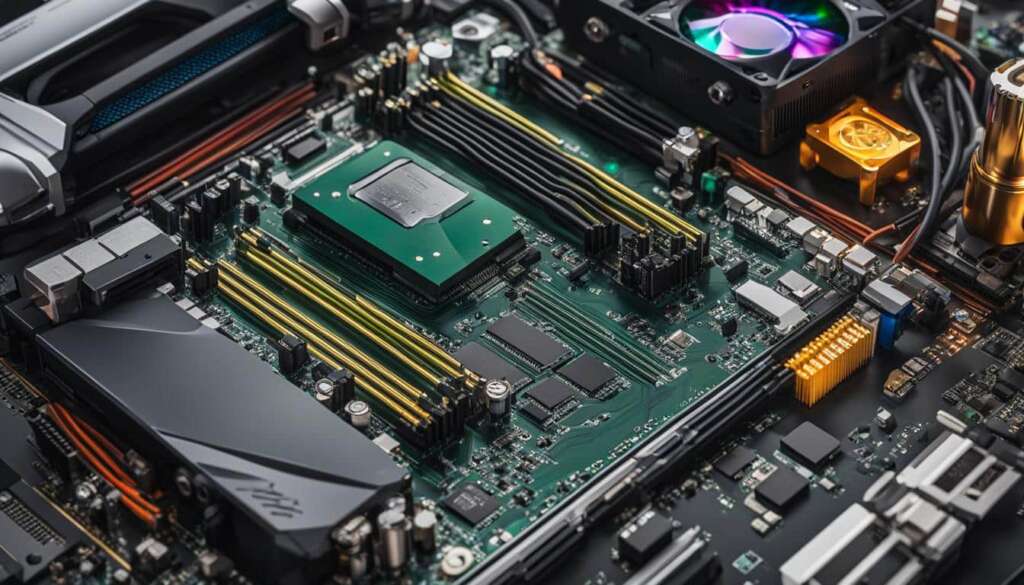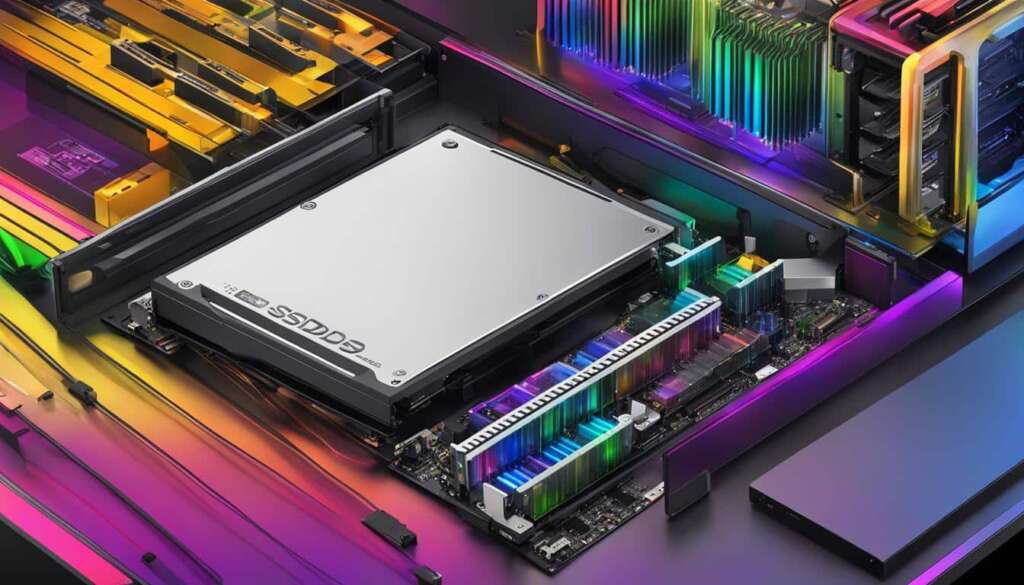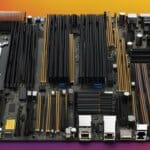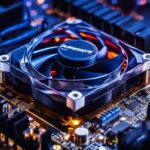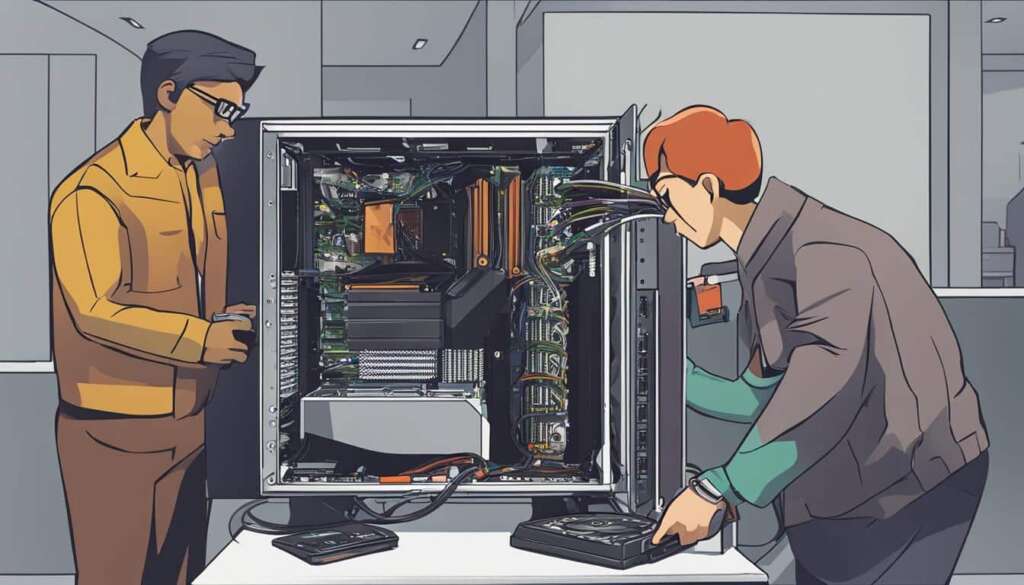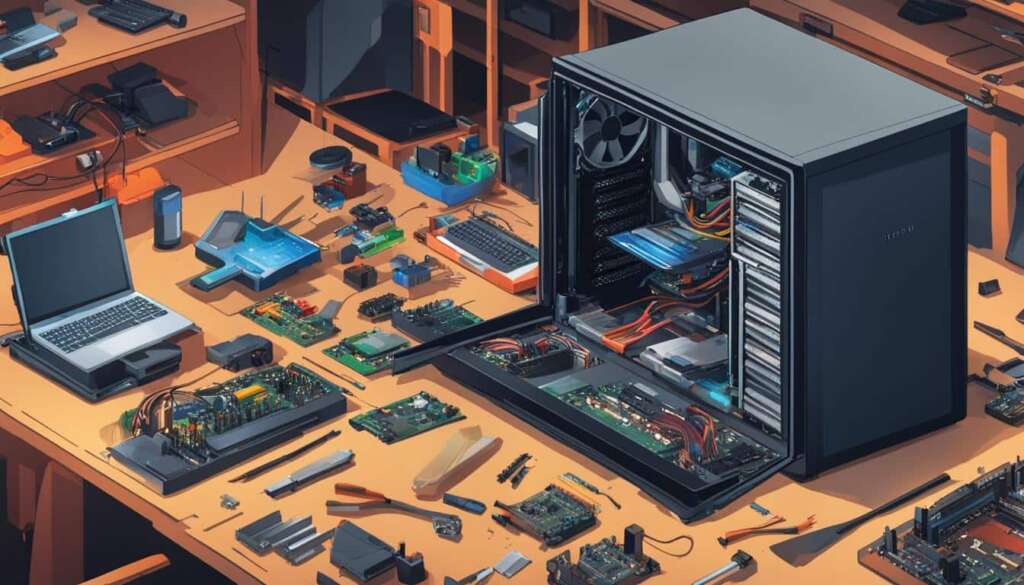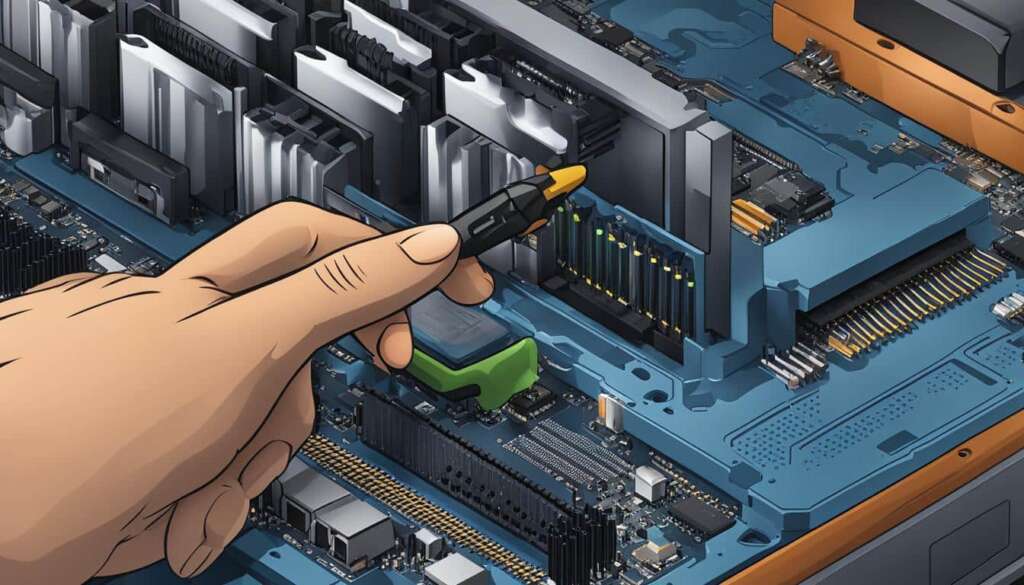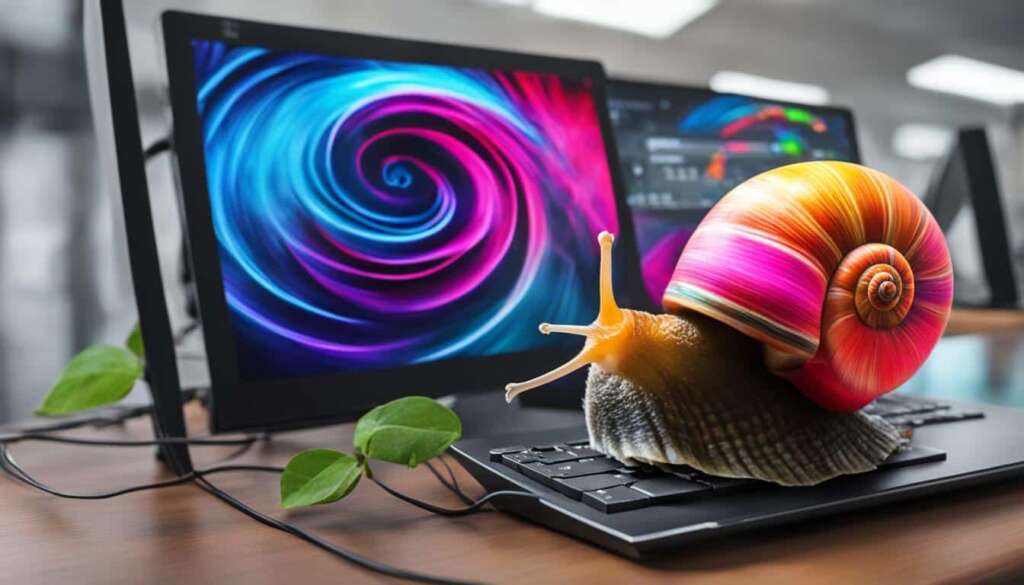Table of Contents
Whether you use your PC for work, gaming, or personal use, it is important to frequently optimize it for better performance. In this section, we will discuss the upgrades you can make to your PC to enhance its performance and improve its efficiency. We will focus on upgrading to an SSD, increasing RAM, removing unnecessary programs and files, keeping your system up to date, limiting programs at startup, and overclocking.
Upgrade to an SSD
One of the most significant upgrades you can make to your PC is to upgrade to an SSD (solid-state drive). SSDs are faster and more reliable than traditional hard drives, and they can immediately improve your PC’s performance.
“Upgrading to an SSD will result in faster loading times for your operating system and programs, quicker file transfers, and reduced boot-up and shut-down times.”
With an SSD, you’ll experience faster system responsiveness and smoother multitasking, allowing you to work, game, and browse more efficiently. The benefits of an SSD go beyond just speed, as they also consume less power, generate less heat, and produce minimal noise compared to traditional hard drives.
When upgrading to an SSD, it is important to consider your storage needs. SSDs come in various capacities, ranging from 120GB to many terabytes. Assess your requirements based on the amount of data you currently have and anticipate needing in the future.
If you are unsure about the health of your current SSD or want to explore even faster performance options, consider upgrading to an NVMe SSD. NVMe (Non-Volatile Memory Express) SSDs utilize the PCIe interface, resulting in lightning-fast data transfer speeds.
SSD Upgrade Benefits
An SSD upgrade offers several key benefits:
- Improved PC performance
- Enhanced system responsiveness
- Faster loading times for software and games
- Rapid file transfers
- Reduced boot-up and shut-down times
- Lower power consumption
- Quieter operation
With an SSD, your PC will become more efficient, allowing you to accomplish tasks more quickly and enjoy a smoother user experience. Upgrade your PC today for a significant performance boost!
| Traditional Hard Drive | SSD |
|---|---|
| Slower read/write speeds | Lightning-fast read/write speeds |
| Prone to mechanical failure | More reliable with no moving parts |
| Noisier operation | Quiet operation |
| Longer boot-up and shut-down times | Reduced boot-up and shut-down times |
Upgrade your PC’s storage to an SSD and unleash its full potential today!
Increase RAM
Upgrading your RAM (Random Access Memory) is a crucial step towards achieving better performance on your PC, particularly when running multiple programs or engaging in memory-intensive tasks like gaming or video editing. More RAM enables your PC to handle these tasks more efficiently, resulting in reduced system slowdowns and an overall improvement in performance.
Before proceeding with a RAM upgrade, it’s important to check your motherboard’s specifications to ensure compatibility with the new memory modules. Most memory manufacturers provide configurator tools to assist in selecting the right RAM for your system. Be sure to use these tools to make the appropriate choices.
Once you have chosen the compatible RAM modules, follow step-by-step guides specifically designed for your laptop or desktop to install the new memory. This process typically involves shutting down the system, removing the case to access the RAM slots, removing the existing memory modules (if necessary), inserting the new modules, and securing them in place. Take care to follow all safety precautions and discharge any static electricity from your body before handling the RAM modules.
After successfully upgrading your RAM, you’ll experience smoother multitasking, quicker program responsiveness, and improved performance overall. This upgrade is especially beneficial for users who frequently engage in memory-intensive tasks or run demanding applications and games on their PCs.
Remove unnecessary programs and files
Optimising your PC involves more than just hardware upgrades. Another crucial step in improving performance is removing unnecessary programs and files that are taking up valuable storage space. By doing so, you can free up disk space and enhance the responsiveness of your PC.
Begin by deleting programs that you no longer use or need. These programs not only consume storage space but may also run background processes that slow down your system. Additionally, identify and remove large files that are taking up excessive storage space. Consider backing up important files before deleting them to ensure you don’t lose any valuable data.
Once you’ve deleted unwanted programs and files, remember to empty the trash/recycle bin to completely free up the disk space. This will allow your PC to have more room for important tasks and improve its overall performance.
Regularly cleaning up temporary and junk files is also essential for PC optimization. These files accumulate over time and can affect system responsiveness. Utilize built-in disk cleanup tools or third-party software to remove these files and keep your PC running smoothly.
To further enhance the responsiveness of your PC, it is important to keep your operating system and drivers up to date. Updates often include bug fixes, security patches, and performance improvements that can positively impact your PC’s stability and responsiveness.
Lastly, limiting the number of programs that start automatically when you turn on your PC can significantly improve its performance. Many applications set themselves to launch at startup, which can slow down your system’s boot time. Disable unnecessary startup programs to optimize PC startup and improve overall responsiveness.
If you’re seeking extra performance, you may also consider overclocking your PC. However, this should be done with proper research and understanding of the risks involved. Overclocking can improve responsiveness and overall speed, but it may also increase heat generation and potentially shorten the lifespan of your components if not done correctly.
FAQ
What upgrades can I make to my PC to enhance its performance and improve efficiency?
You can upgrade to an SSD, increase RAM, remove unnecessary programs and files, keep your system up to date, limit programs at startup, and consider overclocking.
How does upgrading to an SSD improve PC performance?
Upgrading to an SSD results in faster loading times for your operating system and programs, quicker file transfers, and reduced boot-up and shut-down times.
Can upgrading my RAM improve my PC’s performance?
Yes, upgrading your RAM can significantly improve your PC’s performance, especially if you run multiple programs or perform memory-intensive tasks like gaming or video editing.
What should I do to optimize my PC and improve its responsiveness?
You can remove unnecessary programs and large files, clean up temporary and junk files, update your operating system and drivers regularly, limit the number of programs that start automatically, and consider overclocking your PC.

